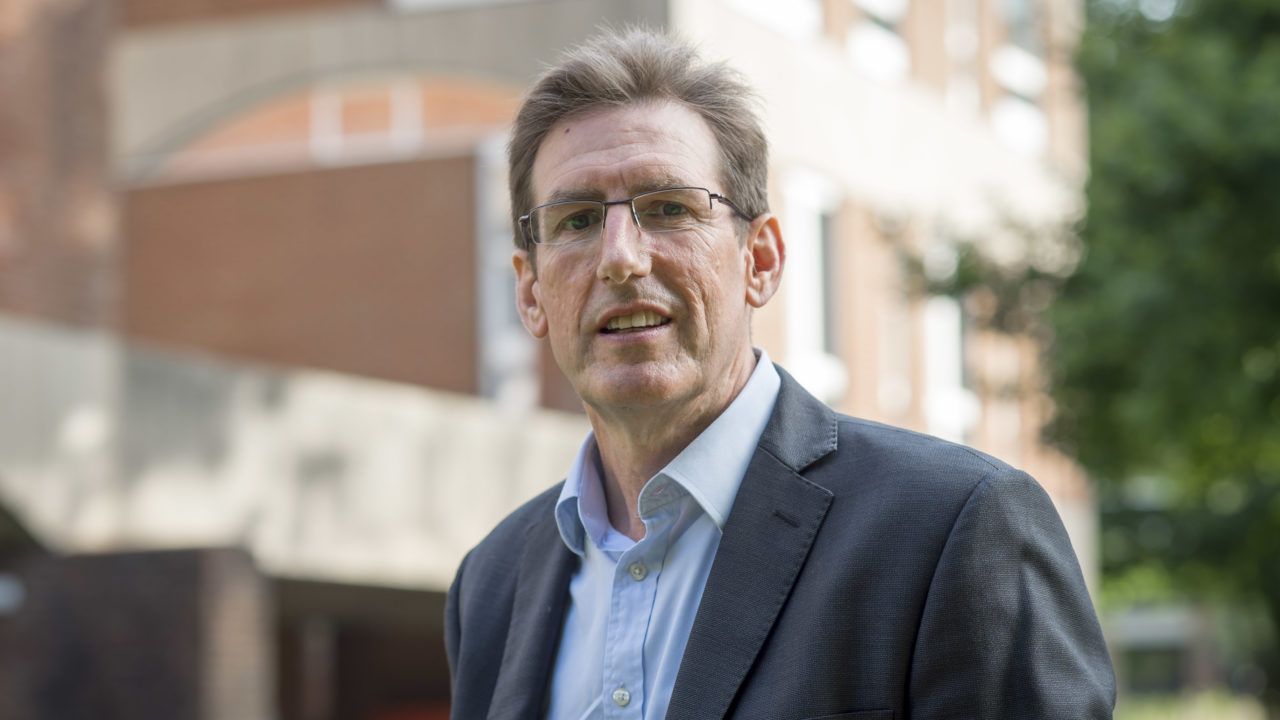Meet our Members: Tim Westlake, University of Sussex
Tim Westlake is the Chief Operating Officer and University Secretary at the University of Sussex. Here he describes his role and the challenges he faces on a daily basis.

What is your higher education history?
Other than a year training to be a town planner for the London Docklands Development Corporation, I have been in higher education for my whole career. I studied for all my degrees at Cardiff University, and after the second year of my PhD I was appointed as a Senior Lecturer in Retail Planning at Birmingham Polytechnic.
After six years as an academic, I returned to Cardiff University to lead their international activities, which I did for eight years. I moved to the University of Manchester in 2005 to lead their international work, just after the merger between University of Manchester Institute of Science and Technology (UMIST) and Victoria University of Manchester (VUM), and worked there for 13 years in three different roles. For my last seven years there I was Director for the Student Experience, before moving to the University of Sussex in August 2017.
What does your current role and remit encompass?
I am both the Chief Operating Officer (COO) and University Secretary. I lead the University’s Professional Services, although I do not line-manage the Director of Finance.
What does a typical day look like for you in your role?
There is no typical day! Like all the higher education institutions (HEIs) I have worked in, at Sussex there is a rhythm to the year that is driven by the student academic cycle. As University Secretary, I am now also learning the rhythm of our governing bodies committee cycle. In addition to a very busy daily diary, I have also quickly learnt that as COO you must ‘expect the unexpected’ – so the unexpected is often part of my typical day!
What do you find most enjoyable in your role?
For my whole career in higher education, the enjoyment has come from the amazing people I work with; the wonderful students and the opportunity to support them on their journey; as well as learning about the research being undertaken by the academic community.
What do you find most challenging in your role?
I guess the biggest challenge is feeling at times that inefficient policies and processes (external and internal) mean my energy is diverted from my core role of supporting the academic endeavours of the University.
What are the current challenges for your institution?
I am sure that many of the challenges faced by Sussex are the same for most higher education institutions, particularly in England. The uncertain political and regulatory environment that we are all working in means there are far ranging challenges, including:
- the well-documented implications with Brexit
- the upcoming publication of the Augar review, which looks set to change the student fees and funding system
- the change in emphasis on students as ‘customers’ as brought about by the introduction of the Office for Students and what is an ever increasing competitive sector.
The framing of education as a service means that the student experience will be paramount, with any academic outcomes/results more closely scrutinised by students and their parents.
As soon as you take your eye off the challenges in the student space, you spot that the research environment is also changing at pace and these bring specific issues for a small research-intensive university. In addition, the new Industrial Strategy and the need to demonstrate the important civic role that Universities play in our local communities and what we all bring to the UK economy will be key.
Perhaps I should have just said the TEF, the REF, and the KEF. But these three acronyms in themselves massively simplify the challenges we all face.
What do you think are the biggest changes ahead for higher education?
Global technological developments will mean that students and staff have increasing expectations around the digital infrastructure of universities. There are great advantages to be gained by those universities who can find ways to truly enhance and innovate their education and research offerings. I think that the pressure of the sector challenges, and the opportunities that technology provides, will result in new models of educational delivery and will significantly improve the experience of students.
Who has inspired you and why?
I have been inspired by many of the extraordinary academics that I have worked with over the last two decades as a member of the Professional Services. If I had to pick one, it would be Sir Brian Smith, who was Vice-Chancellor at Cardiff University when I took up my first senior professional services role. He had been a Master of an Oxford College before moving to Cardiff and he brought with a belief that universities are families, and as complex as them. I learnt from Sir Brian that it is a privilege to work in universities and that they are special places both for the staff and students. Since working with Sir Brian, I have done my best to model his approach to leadership, with a focus on seeing my place of work as my family. This includes treating colleagues as kin and with kindness, one of five values that the University of Sussex has built into its new Strategic Framework.
